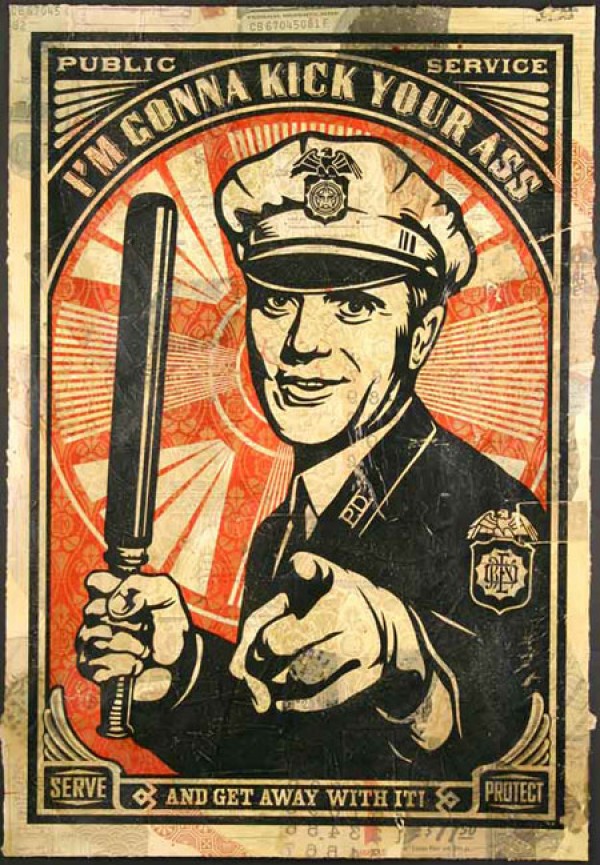NEW YORKER: In the modern labor movement, police unions are outliers, their politics well to the right of even the Teamsters and the building trades. They can make common cause with the movement when union-killing legislation looms, as it briefly did in New York State a few years ago. But when they know they will be spared, as in Wisconsin, they stay quiet even while teachers and nurses and sanitation workers are being squashed.
For the left, one problem with hammering police unions is that the right is doing the same thing. National Review and the Wall Street Journal’s editorial page recognize the problems with police unions and accountability, and they duly extend the argument to teachers’ unions and municipal workers. Their sentiment is: bust them all. Benjamin Sachs, a professor of labor and industry at Harvard Law School, points to new data showing that, when police have greater access to collective bargaining, it correlates with a long-term increase in police killing of civilians, specifically nonwhite civilians. Strong union towns like Chicago often have a more dangerous police culture than cities with weak labor laws do. In Dallas, for instance, the main police union is not the sole bargaining agent. Several different groups, including fraternal organizations of African-American and Latino officers, sign off on union contracts. The result is both more transparent and markedly less violent policing.
Ben Brucato, a sociologist at Rhode Island College, argues that police unions are crucially different from other labor unions. “These organizations function as lobbies to both resist accountability legislation and shield implicated officers,” he writes. A public-sector union is distinct from its private-sector counterparts; its negotiations necessarily include, at least morally, a third party—the public, the taxpayer. And yet many police unions, in their contracts and their ideology, seem to make no provision for this invisible third party. They defend their members against the public, and punish whistle-blowers with even greater zeal than management does. Police unions “represent hundreds of thousands of people, and, except in a very few states, have the ability to organize without any opposition from government,” Brucato told me.
Brucato believes that the solution is to abolish police unions. He has a list of ten steps toward that end, including cancelling contracts, mass firings in the event of illegal slowdowns, and federal prosecutions for persistent obstruction of justice. Other abolitionists want to see major labor federations, such as the A.F.L.-C.I.O., sever ties with police unions. Sachs agrees that there is an urgent need for reform, but he suggests considering more procedural steps: limiting collective bargaining to non-disciplinary matters; opening bargaining sessions to the public; encouraging departments to have multiple unions, representing more diverse views. Many analysts emphasize the need for new use-of-force protocols that are known to save lives but that the unions reject. MORE

